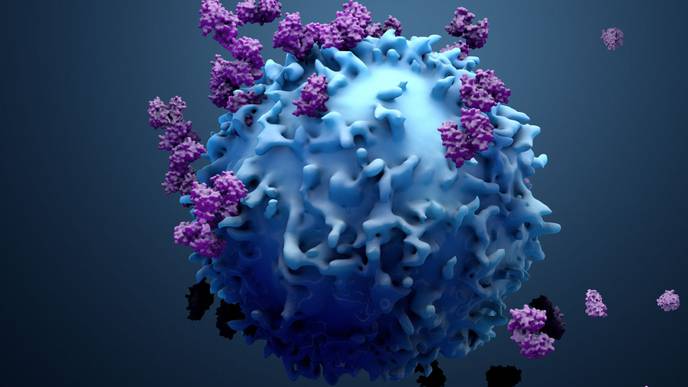Glutamine Metabolism Inhibition Affects Tumor Cells?

08/17/2023
"These new findings evidence the necessity of more research in Gln metabolism to define the best therapeutic strategies for cancer patients."
BUFFALO, NY- August 16, 2023 – A new editorial paper was published in Oncotarget'sVolume 14 on August 10, 2023, entitled, "Inhibition of glutamine metabolism: acting on tumoral cells or on tumor microenvironment?"
Cancer cell growth and survival relies on metabolites and metabolic routes different from those used by healthy cells. Glucose and glutamine (Gln) uptake and consumption is increased by many cancer types in order to support their high growth rate. Besides being metabolized to tricarboxylic acid (TCA) cycle precursors, Gln is necessary also for the generation of nitrogen-containing metabolites, such as nucleotides, glucosamine-6-phosphate or nonessential amino acids. Indeed, nitrogen supply has been widely described as limiting for cell cycle progression.
As mitochondrial glutaminase (GLS) directs Gln into the TCA cycle, its inhibition has been suggested as a potential strategy for targeting and blocking Gln metabolism in cancer cells. In fact, GLS inhibitors block cancer cell growth in vivo and in vitro. Based on this premise, several clinical studies have been conducted to test if Gln dysregulation increases cancer patients' survival. So far, these treatments have not been able to induce a great overall benefit for patients due to the ability of tumor cells to alter their metabolism.
Different authors have described an increase in the oxidative stress after alterations in Gln metabolism in vivo, suggesting the possibility to combine glutamine dysregulation strategies with some other therapies increasing reactive oxidative species to promote cancer cell death. In his new editorial, researcher Raul Peña from Institut Hospital del Mar d'Investigacions Mèdiques (IMIM) discusses a novel mechanism by which Gln, usually concentrated at the tumor periphery, acts as a chemoattractant for cancer-associated fibroblasts (CAFs), enhancing extracellular matrix degradation and facilitating epithelial cancer cell migration and metastasis in vivo.
"Recently, we described a new action of Gln on cancer-associated fibroblasts (CAFs) in breast cancer. [...] In our study, we determined that mesenchymal-like epithelial breast tumor cells and CAFs present a higher dependence on Gln than tumor epithelial breast cancer cells."
Read the full editorial: DOI: https://doi.org/10.18632/oncotarget.28443
Correspondence to: Raúl Peña
/Public Release. This material from the originating organization/author(s) might be of the point-in-time nature, and edited for clarity, style and length. Mirage.News does not take institutional positions or sides, and all views, positions, and conclusions expressed herein are solely those of the author(s).View in full
here.

Facebook Comments